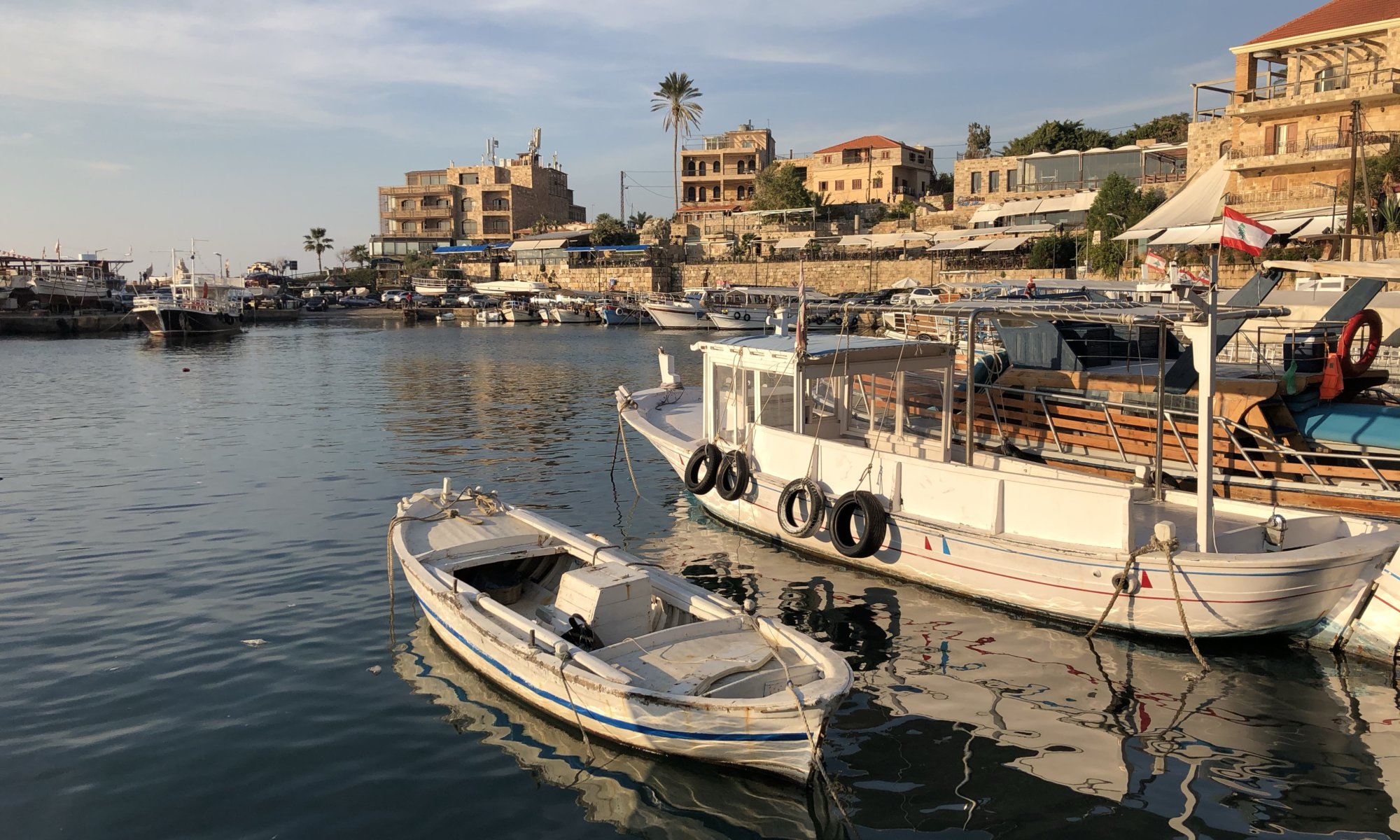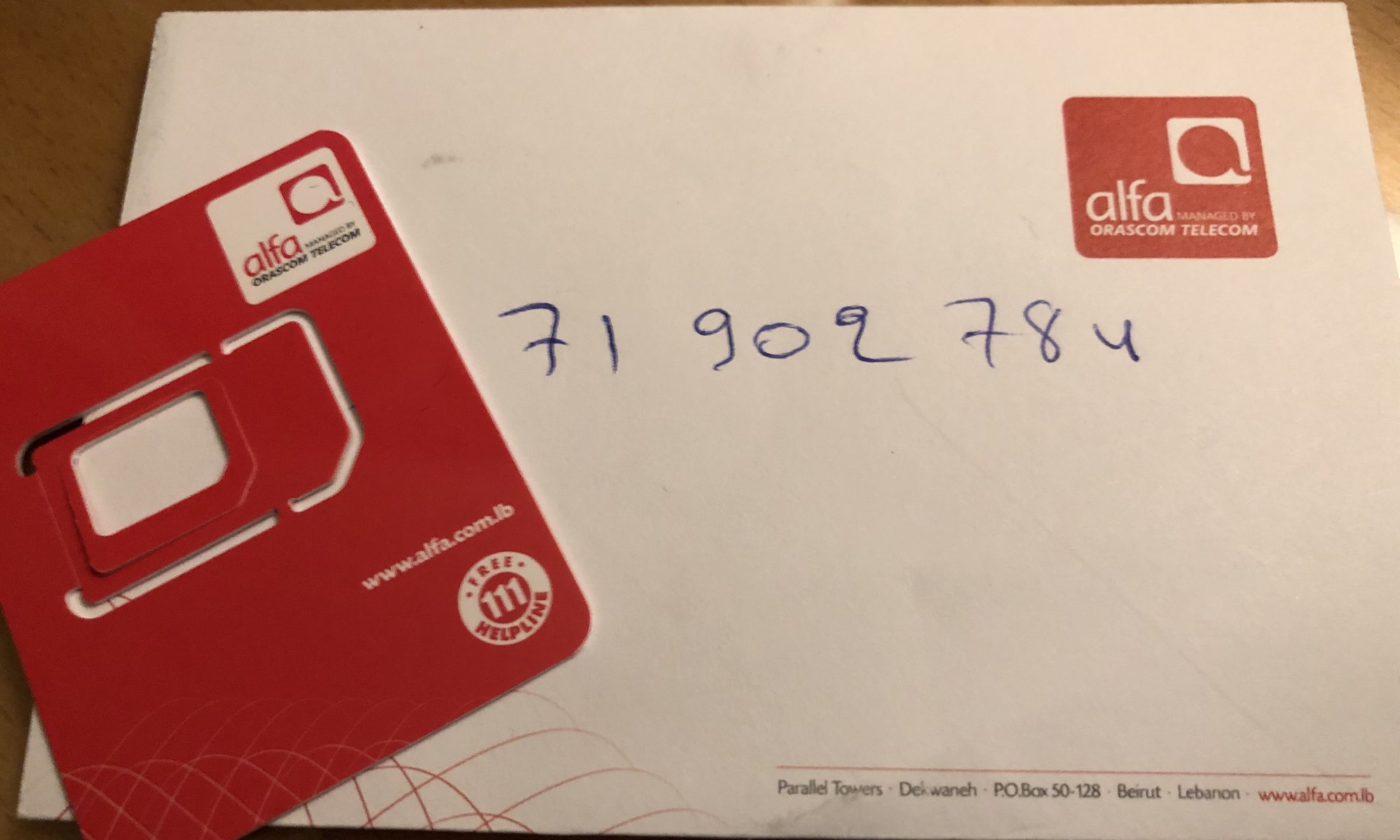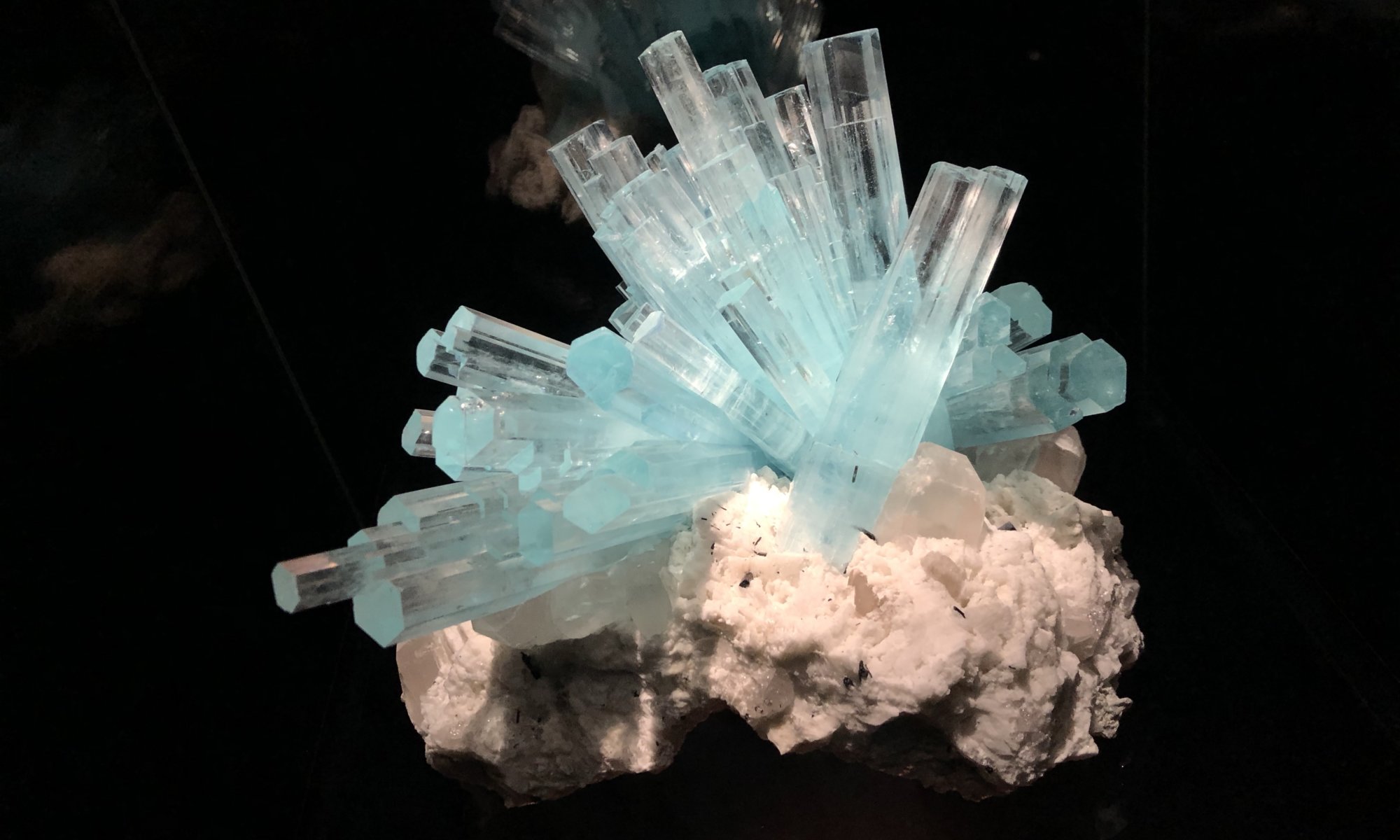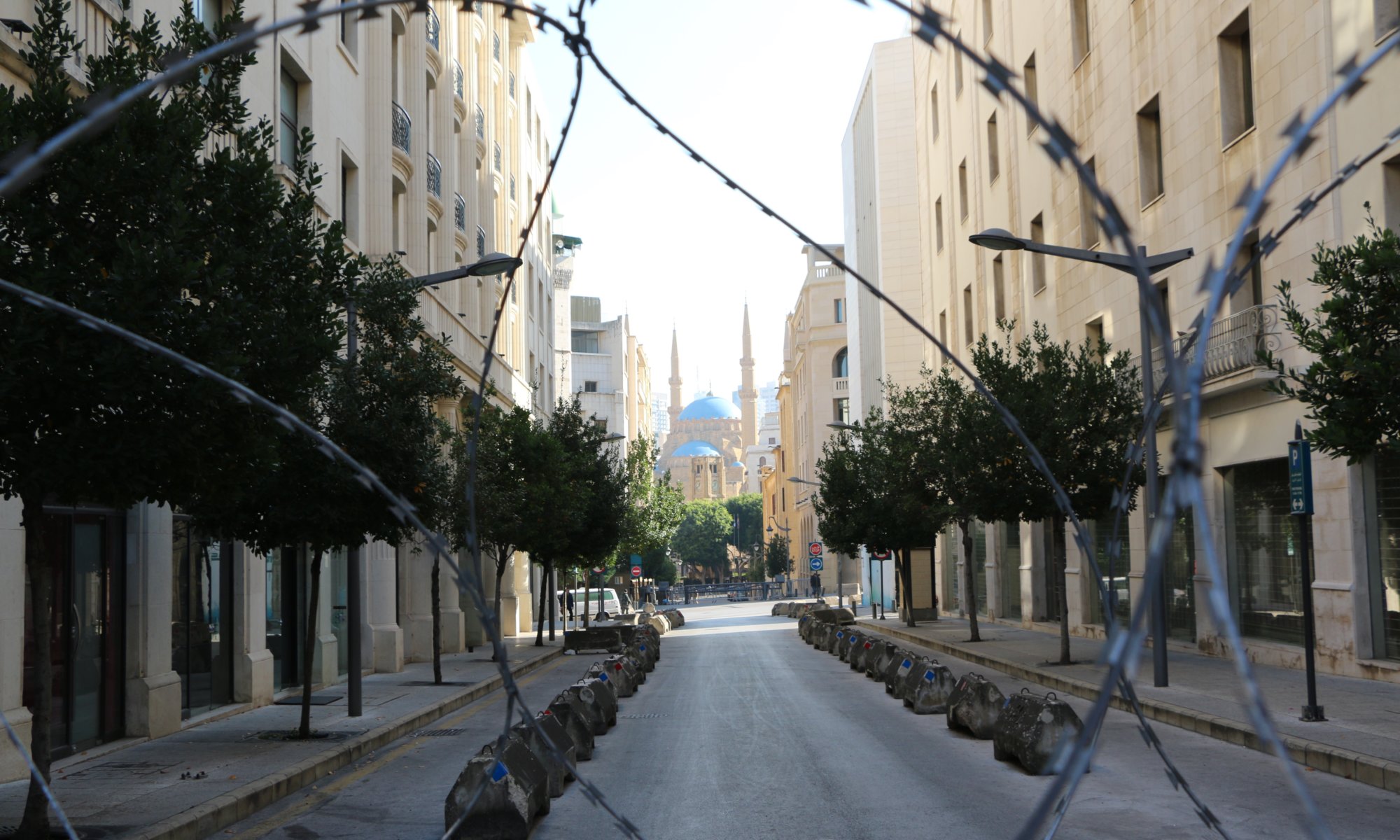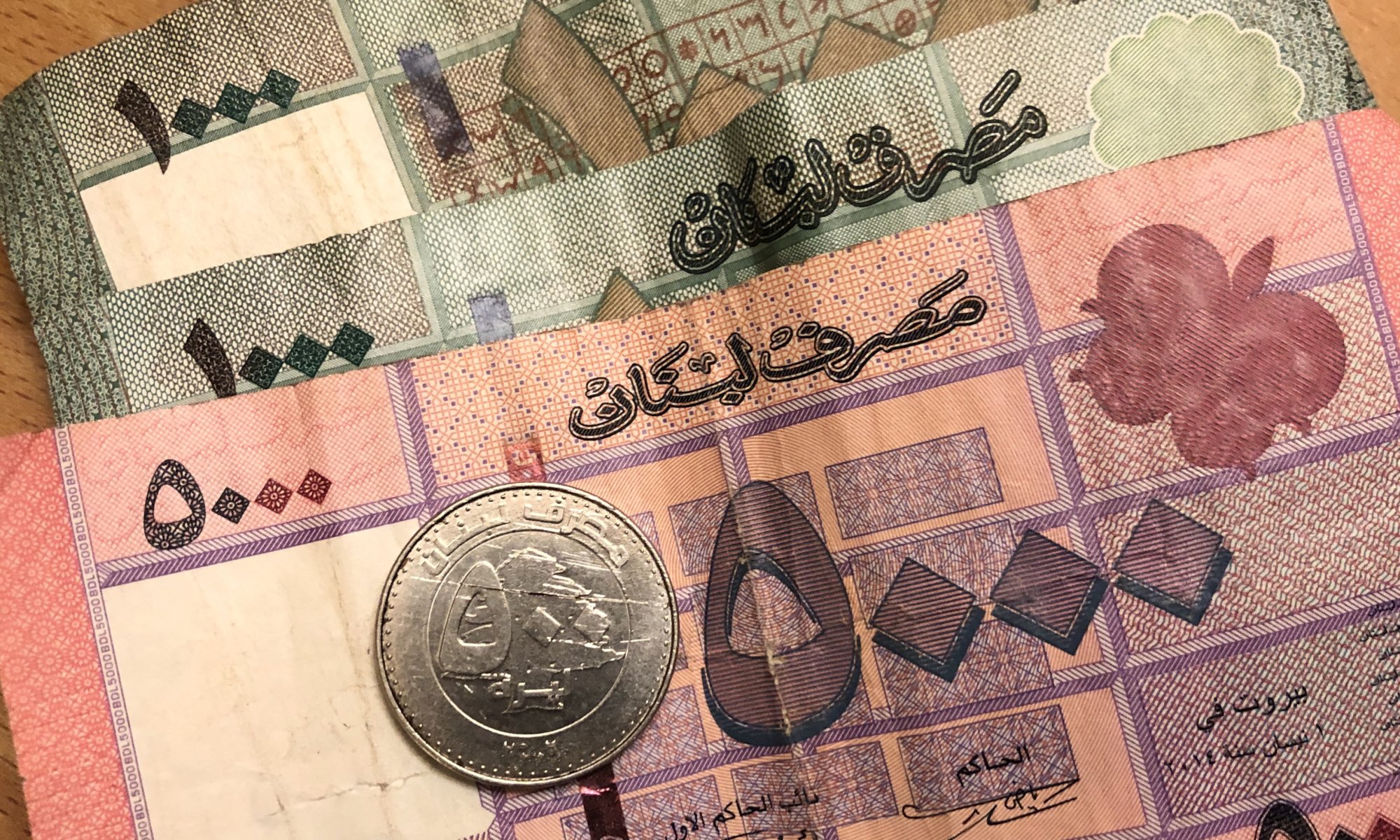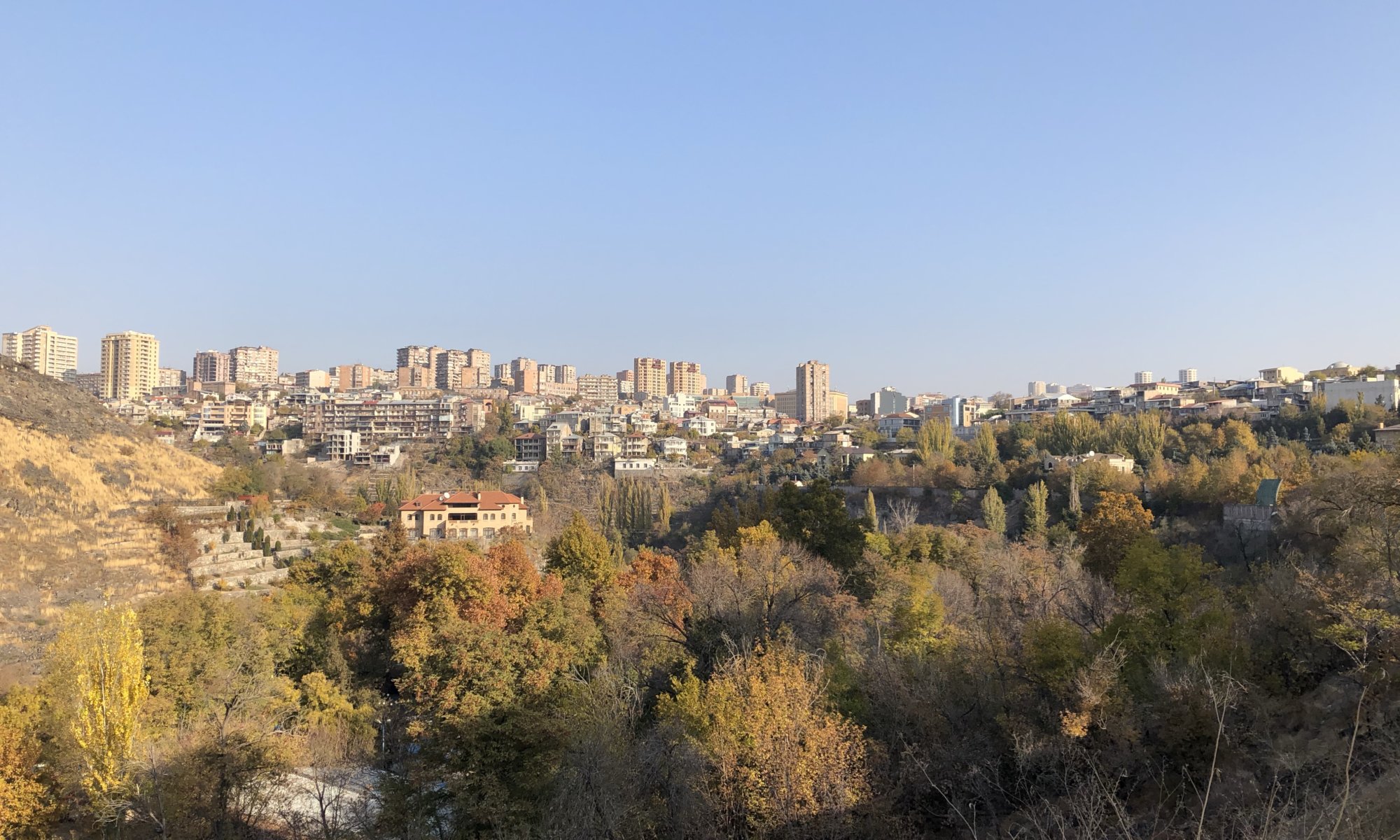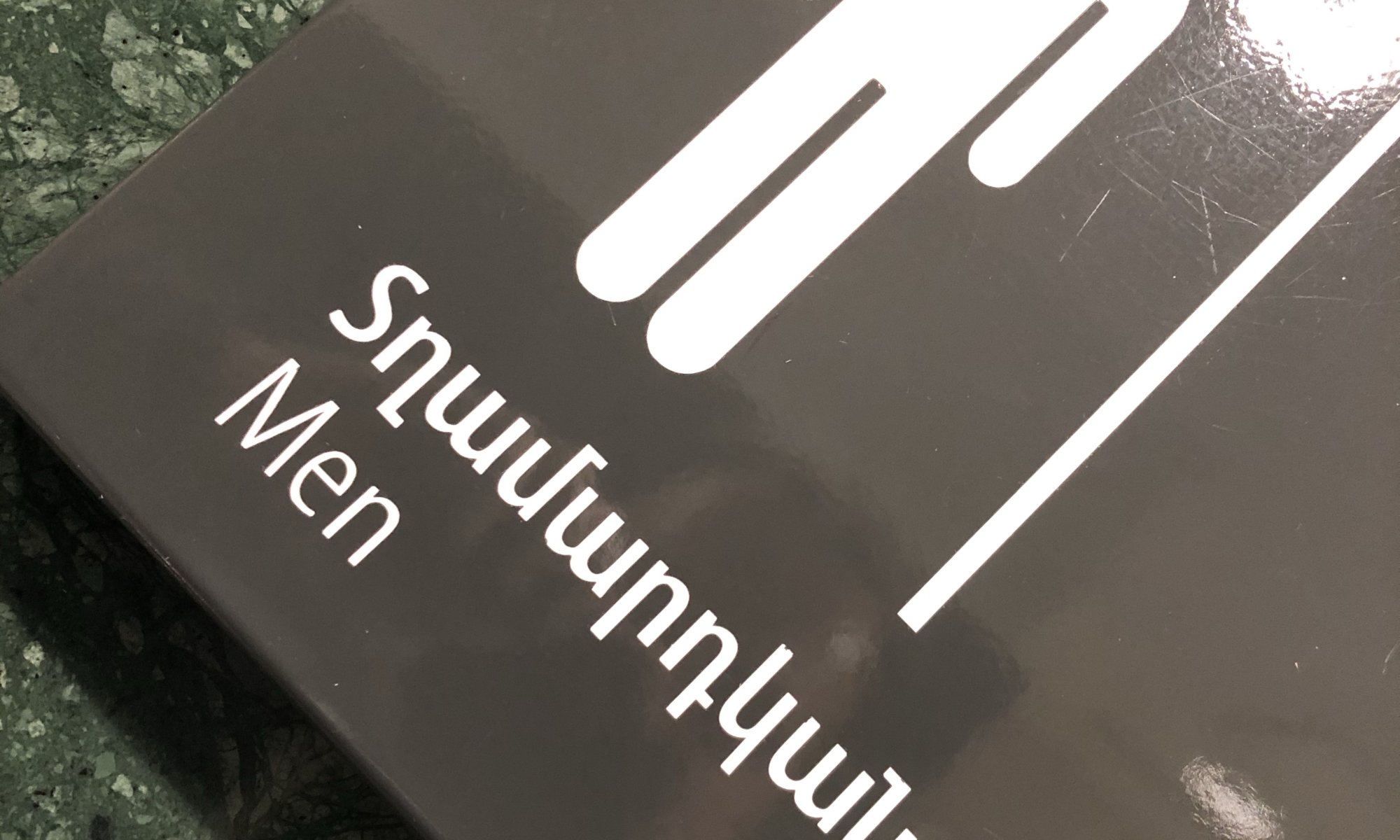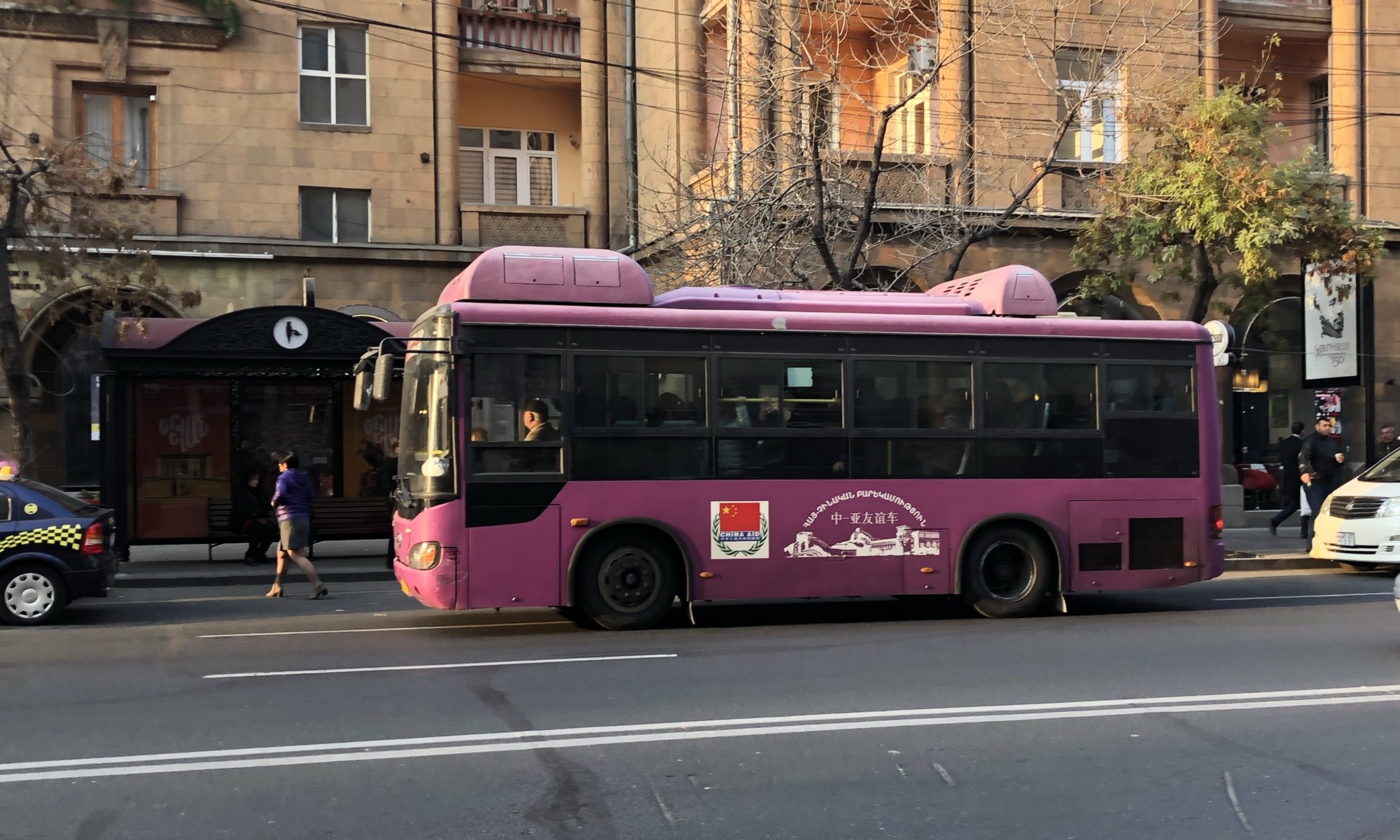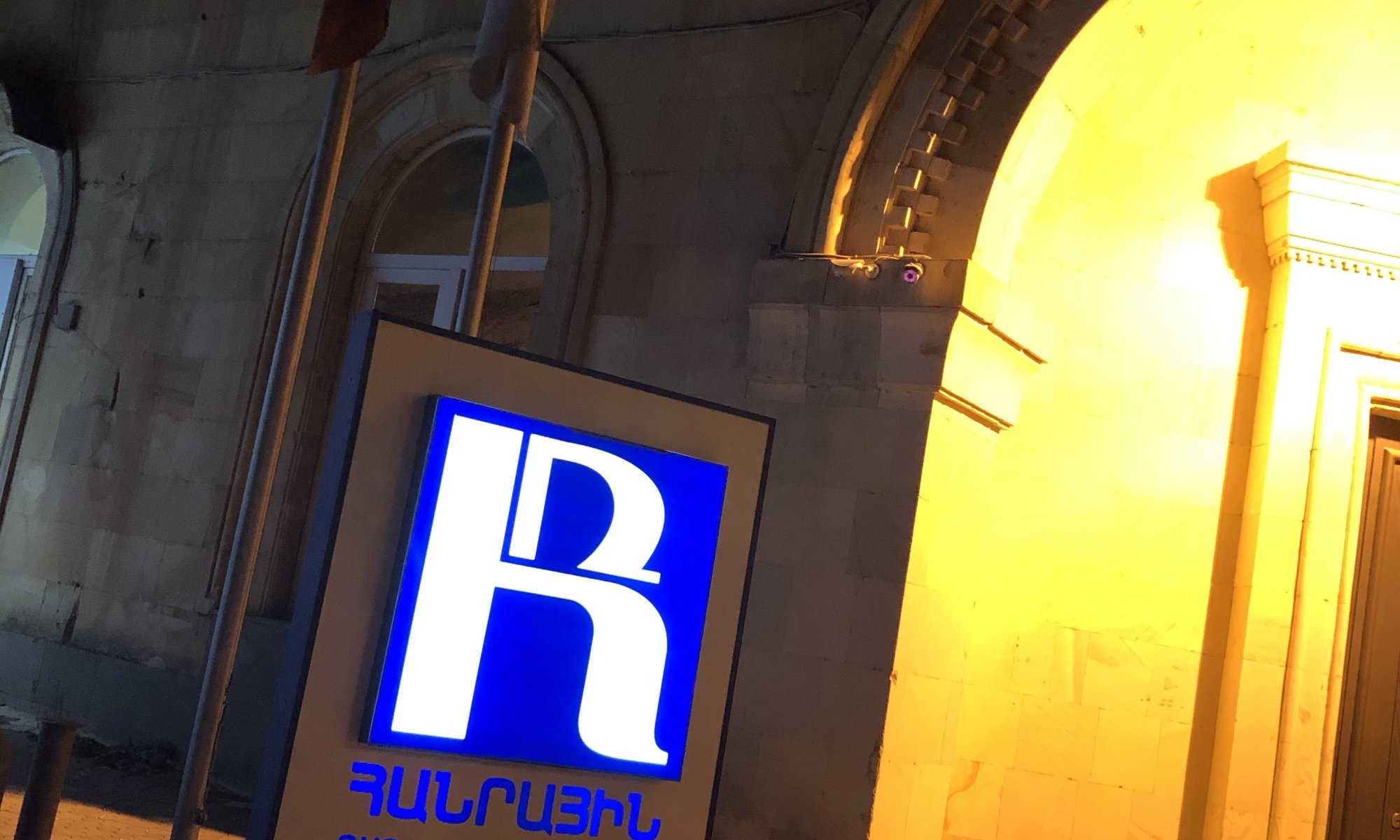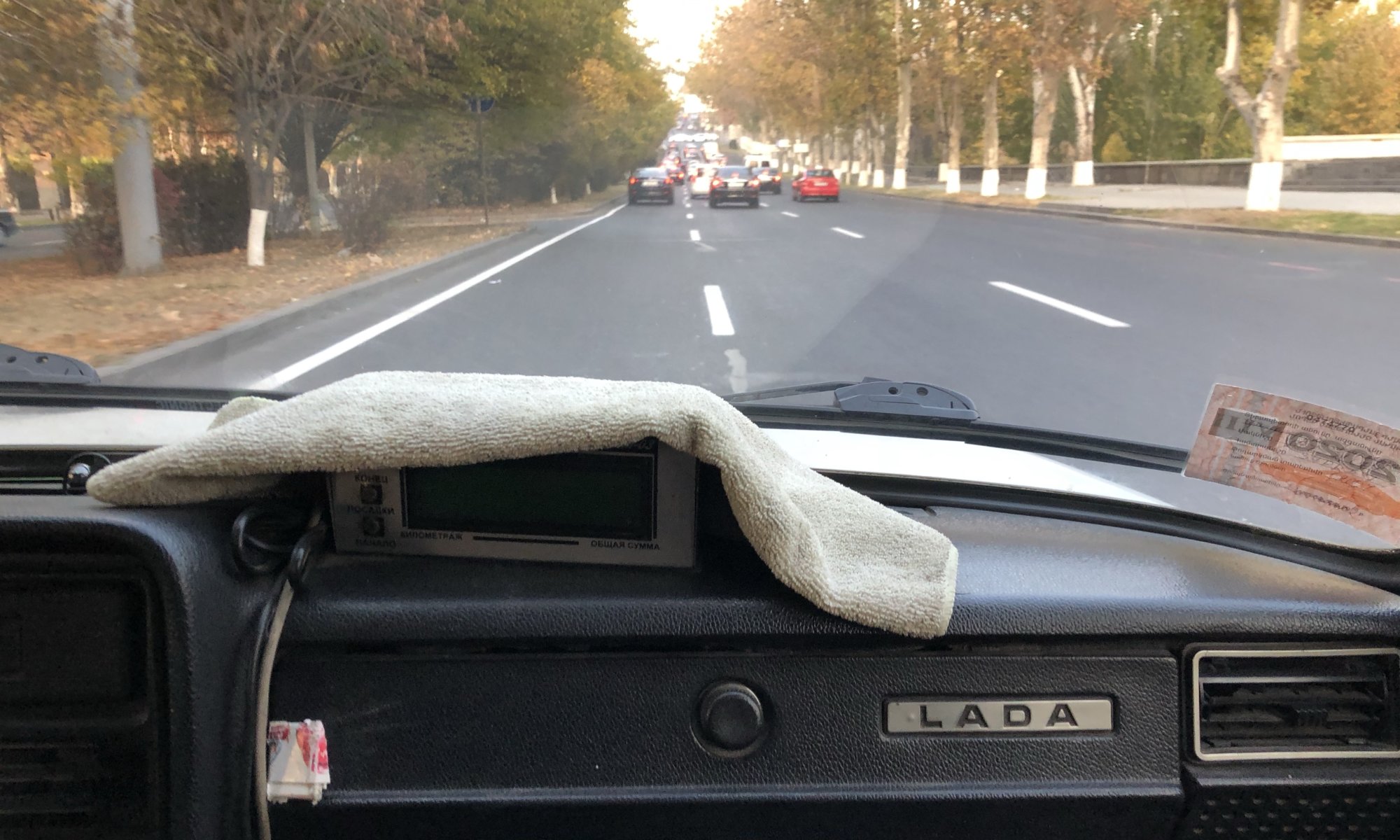The city of جبيل, Lebanon, is one of the oldest, still inhabited cities in the world. It dates back to 5th century BCE and was over many centuries an important harbour for trading with Egypt and Cyprus. While the Egyptians preferred the strong Cedarwood of Lebanon, the Lebanese needed stones that were less weak than the local material. Byblos also became an important hub for trading papyrus. Under the name Gibelet and under Christian reign it became an important harbour for the Christian crusaders travelling to the Holy Land.
Continue reading “Byblos”Stay connected
When I went to Lebanon I decided to get a local SIM card for my mobile phone. And that was a very easy decision as my provider Deutsche Telekom places Lebanon into its horrible Ländergruppe 3 (the group of countries with the highest roaming costs) and doesn’t even offer data packages to book. Paying horrible 0.49 Euros every 50 KB (observe the unit, per 50 kilobyte!), making phone calls for 2.99 Euros every minute (or receiving them for 1.79 Euros per minute) and paying 0.49 Euros for every SMS message wasn’t an option. Using just the WiFi in your hotel, in coffee bars and restaurants might be okay. But especially if you want to use Uber to get around or if you travel to rural areas it feels better to have a constant connection.
Continue reading “Stay connected”Minerals
I admit I was wrong. I always believed that a collection of minerals must be absolutely boring. But then I came across the Mineral Museum (MIM) of the Université Saint-Joseph at بيروت, Lebanon. It is a vast collection of minerals from all over the world. As it belongs to a university there are good scientific explanations but the presentation is also very nice. They play a lot with light and stage the beautiful stones the right way.
Continue reading “Minerals”Revolution
Lebanon currently experiences exceptional circumstances. 30 years after the Lebanese civil war and 15 years after the so-called Cedar revolution and the Lebanon war in 2006 the country now has a governmental crisis. Since October 2019 the people are protesting on a daily basis against corruption, economic turndown, daily electricity outages, the political elite and a system that assigns governmental positions and the number of seats in the parliament by religion. More than ten different religious groups claim their rights and finding consensus must be like a mission impossible.
Continue reading “Revolution”Lebanese pound
Concerning currencies, a visit to Lebanon is a bit special. The official currency is the Lebanese pound (LBP, currency sign ل.ل.) which is sometimes also called Lebanese lira – most probably because of the French and Arabic names: livre libanaise and lira libnaniyya. After the Lebanese civil war and the inflation caused by it, the value has been fixed to the US dollar. One USD is worth 1507.5 LBP. At most places, it is possible to also pay in USD and if you only have Euros left in your pocket: most people will accept EUR banknotes, too. They then tree the EUR equal to USD which isn’t the best deal.
Continue reading “Lebanese pound”Երևան
Never did I underestimate a country as I did with Armenia. It was the first Christian country and its capital city Երևան was founded 29 years before Rome, Italy. The result of this long and culturally rich past can be seen in numerous museums and temples throughout the country. During Soviet times the Asian face of Երևան was nearly fully destroyed – today the city centre is very modern, financed in relevant parts by money coming from the diaspora (created by the genocide of 1915).
Continue reading “Երևան”Armenian
The language of Armenia is an Indo-European language which strong connections to the Greek language and many words taken over from Iranian. It is spoken in Armenia and the internationally not accepted Republic of Artsakh (or Nagorno-Karabakh). But because of the large Armenian diaspora, it is spoken in different other countries. Additionally, it is used together with one of the most beautiful alphabets I’ve ever seen.
Continue reading “Armenian”Public transport
Getting around at Երևան, Armenia, by public transport is cheap (~100 drams per ride, that is 0.20 Euros) but not that easy. The system is a combination of buses, trolleybuses, shared taxis and a metro system. I dislike taking buses in places like this because it is hard to find out where which bus is going and where to exit – especially because of the beautiful but for me unreadable Armenian alphabet. And on the other hand, using taxis is very cheap for a foreigner in this country and ordering one by the gg smartphone app (which was installed when I received my YerevanCard) is so easy.
Continue reading “Public transport”Radio Yerevan
The funny thing is that I first heard about Երևան, the capital city of Armenia, by jokes. And I’m definitely not the only one. During the times of a split Germany, it was impossible to criticise the government of East Germany without serious consequences – if you were living in the GDR. Therefore someone invented the fictitious radio station Radio Yerevan and jokes that always followed the same schema: ‘Radio Yerevan was asked‘, ‘Radio Yerevan answered: in principle yes, but…‘.
Continue reading “Radio Yerevan”Lada
If you visit Երևան, Armenia, you will see all types of cars from different vendors and countries. You might even have a taxi ride in a car that was built for driving on the left side of the road – feels a bit strange as in Armenia you have to drive on the right side. What you will see very often are Russian Lada cars know to be nearly undestroyable and which can be easily repaired. This reflects the strong bonds Armenia and Russia had in the past during the times of the Soviet Union – but also still today.
Continue reading “Lada”
